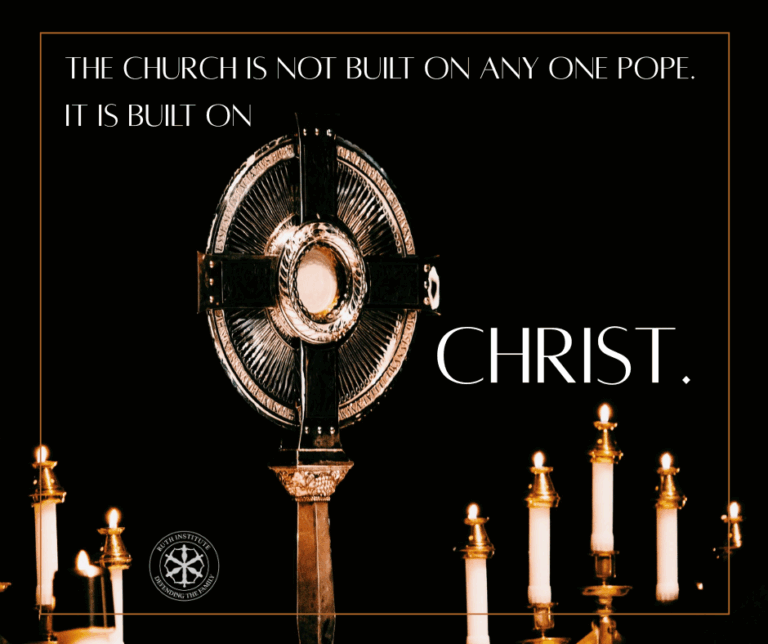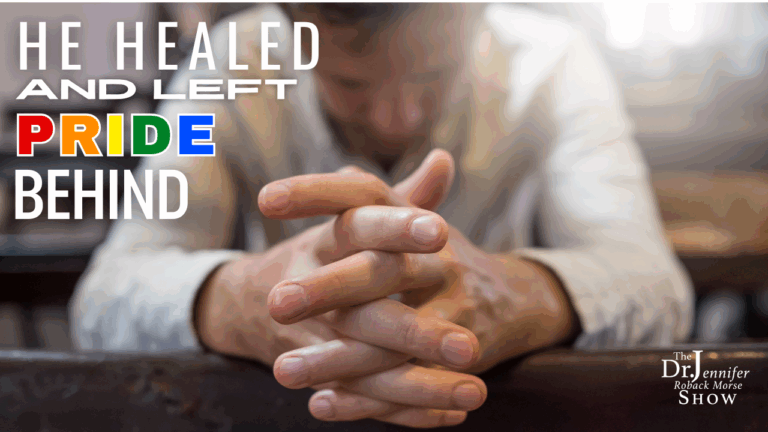by Jennifer Roback Morse
This article was originally posted at Crisis Magazine August 3, 2017.
When people learn that I oppose no-fault divorce, some will say, “You have forgotten about abusive marriages.” When the Ruth Institute,
the organization that I lead, describes itself as “The World’s Only Campaign to End Family Breakdown,” we hear again, “But what about abusive marriages?”
So, let me deal with this important issue. What about abusive marriages?
First off, let me assure you: I am certainly aware abusive marriages exist. I hear a lot of these stories. There are valid reasons why sometimes, spouses
can, and should live separately. I am not opposed to separation in these cases. In some cases, a civil divorce can be justified, and even necessary.
The real question is this: who “broke” this family? Remember, I’m working to end family breakdown. In my opinion, the person throwing furniture through
the wall, broke the family covenant. His wife has every right, and perhaps even a responsibility, to ask him to move out. If he refuses, she may
need the help of (our admittedly dysfunctional) legal system. But make no mistake: she is not breaking up the family. He is.
Or what about this case? A woman becomes addicted to drugs. She spends all the family’s money, runs up credit card debts and acquires new lovers. Her
husband may very well need to kick her out, sever all their financial dealings, and take steps to keep her away from the kids. He may need the
help of the government to accomplish this. And yes, a divorce may be the only way to disentangle her from the family finances.
Who broke this family? The person who broke the covenant: the wife. The husband is protecting himself and his children.
I’m against the behavior that led to the family breakdown. I’m not against the innocent party doing what they need to do to protect themselves and
their children. Yes, I’m so much against family breakdown that I want to see abusive behavior end.
I stated right up front that I am opposed to no-fault divorce. I stand by that. No-fault divorce was a radical restructuring of the institution of
marriage. Under the no-fault regime, the State takes sides with the person who wants the marriage the least. The State not only allows, but actually
assists, the least committed party to unilaterally ending the marriage.
Under a fault-based regime, an abused spouse could get a divorce. Abuse, adultery, abandonment, addiction: these were considered marital faults in
virtually any jurisdiction. The person claiming a fault would have to offer evidence, to prove the faults had indeed occurred. But a fault-based
divorce regime does not mean divorces never happened. Nor would a reintroduction of marital fault mean that “women would be trapped in abusive
marriages.”
Under the no-fault divorce regime, the State pretends to be unable to discern an abusive marriage, from one that is not, or an offending party from
an innocent party. The State then turns around and presumes to discern parenting plans, child support plans, and living arrangements of entire
families. According to the State, no one has done anything wrong. Yet, the State assigns itself the right to send children for psychological evaluations,
and to investigate all the family’s financial records.
It is true that the State does not use all this authority in every instance. This does not negate the fact that they still have that authority. No-fault
divorce is a highly intrusive, privacy-invading legal structure.
Finally, some will ask, what about the Catholic Church’s annulment process? The annulment process is conceptually separate from discerning whether
a marital fault has taken place. I realize this may sound harsh. But adultery or abuse has no direct bearing on whether the marriage was canonically
valid in the first place.
The annulment process seeks evidence about the conditions surrounding the marriage itself. Did both parties freely consent? Were there any defects
of form? Were both parties free to marry? Whether one or both became mentally ill or abusive or adulterous or anything else is not, strictly speaking
relevant. If a person is too dangerous to live with, the couple can licitly live separately.
So why is annulment such a big deal in the Catholic Church? An annulment gives a person the Church’s permission to contract a Catholic marriage, just
as a civil divorce grants a person permission to contract another civil marriage. But bear in mind: no one ever has to get married again.
This is why I am persuaded that abusive marriages do not present an exception to Jesus’ law of the indissolubility of marriage. Nor does the existence
of abusive marriages dissuade me from my belief that family breakdown is something every decent person should work to end.
Breaking up a family in the absence of marital fault is unjust to the innocent parties, especially the children. And when abuse does take place, the
person filing the divorce papers is not the person breaking up the family. The abuse that led to divorce is what needs to stop. Surely everyone
can agree to that.



